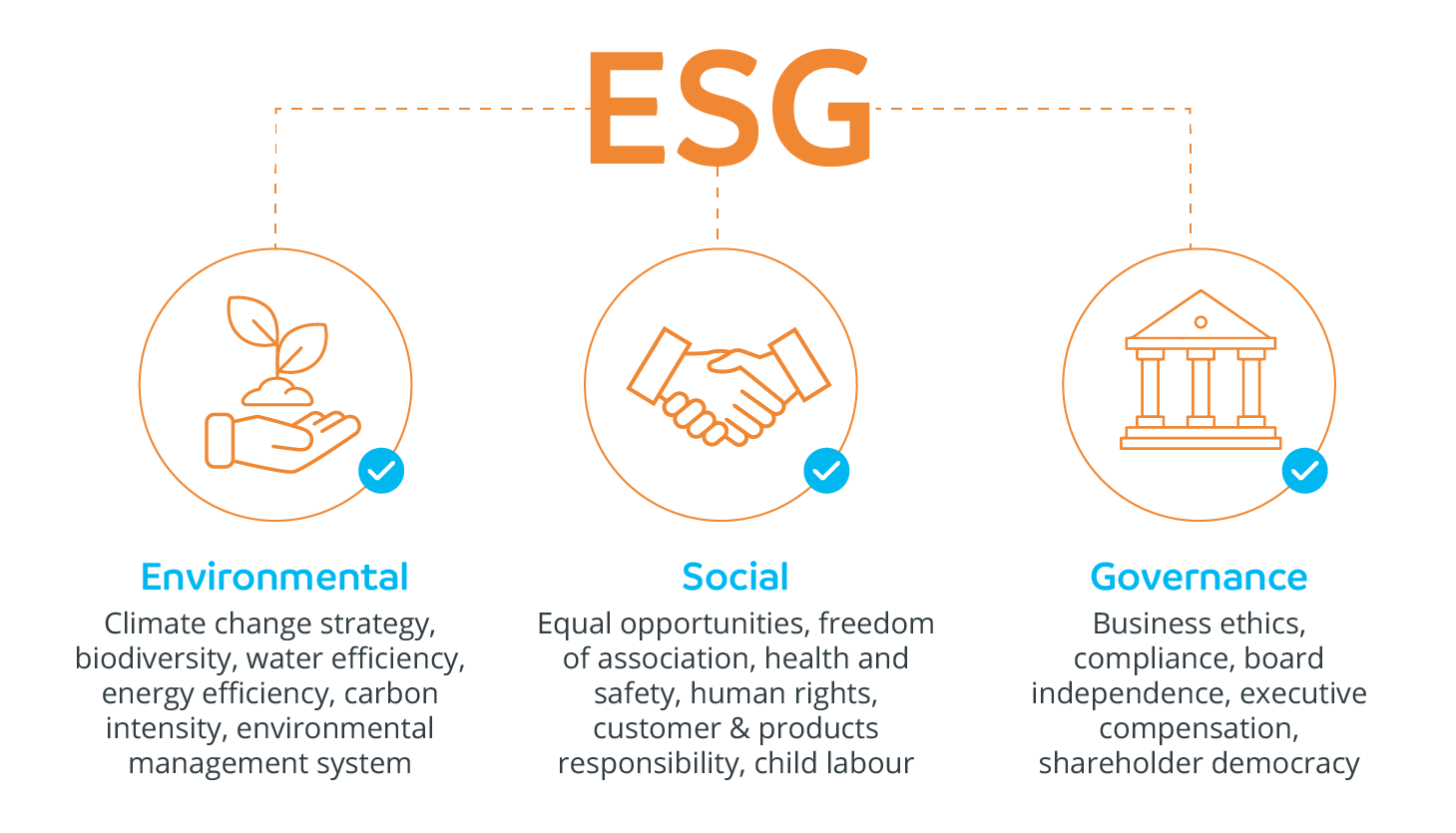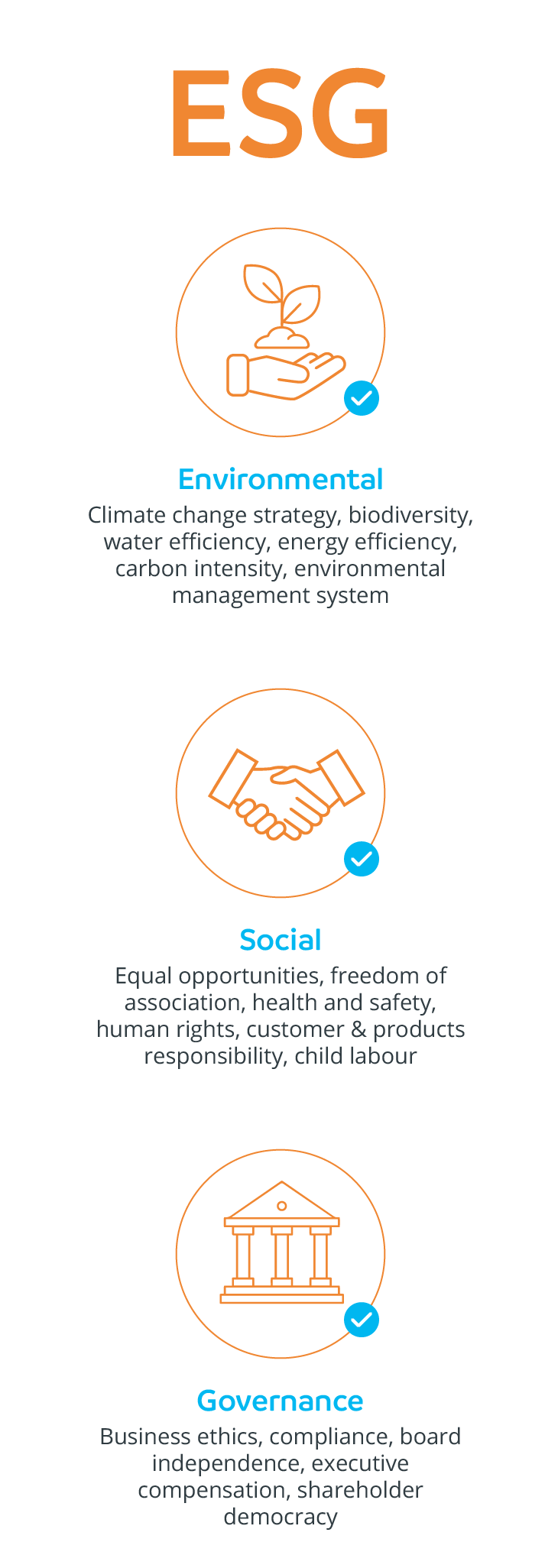5 tips to improve environmental sustainability in outsourcing
The acronym ‘ESG’ may be a relative newcomer to the business landscape but it is certainly having an impact in boardrooms across the world. Aligning corporate values with guiding principles is nothing new but from the moment the term was included in a 2006 United Nations Principles for Responsible Investment Report1, business leaders have increasingly incorporated environmental, social and governance (ESG) considerations into their operations.

Nowhere is the pressure to set an ESG standard higher than the environment. Amid myriad headlines about climate change, resource depletion and social inequity, organizations are under mounting pressure to balance the corporate imperatives of today without risking the planet’s health for future generations.
Crucially, there is growing awareness that environmental sustainability is a key factor in long-term business success. With consumers no longer willing to be passive observers when it comes to poor environmental practices, businesses are raising the sustainability bar as evidenced by a recent Deloitte study that found 75% of organizations have increased their sustainability investments during the past year, nearly 20% of which have done so “significantly”2.
Among countless industries under pressure to do better is the outsourcing sector. Where onshore clients were once laser-focused on cost reductions and efficiency increases, these days they are also asking questions about a prospective outsourcing partner’s green credentials and sustainability practices.
With a global market size of more than $260 billion3, the BPO sector clearly has the size, resources and influence to make a difference when it comes to the environment. Better still, there are many reasons it makes good business sense for outsourcing providers to go green.
What is environmental, social and governance (ESG) in outsourcing?
Environmental, social and governance (ESG) criteria are used by companies, investors and consumers to assess an organization's performance against non-financial measures such as its impact on climate change and wider society. Outsourcing providers are increasingly using ESG standards to showcase their commitment to being quality corporate citizens.


Source: Socially Responsible Investing: The Rise of ESG - THRIVE blog (strive2thrive.earth)
Tips to improve environmental sustainability in outsourcing
There are various practices that outsourcing providers can implement to positively impact the sustainability cause.
- Green workplace practices: while governments and multinational corporations are under pressure to deliver significant ‘wins’ for the environment, businesses of all shapes and sizes can make small changes of their own. By supporting countless administrative functions, BPOs have long been huge users of paper but digitization strategies are playing a key role in reducing paper usage and waste. Smart outsourcing providers are also adopting energy-efficient lighting systems, eco-friendly heating and cooling, and embracing smart building technologies to lower energy consumption and show clients they are committed to addressing environmental concerns.
- Renewable energy sources: quality offshore providers appreciate the importance of adopting the latest technologies to better serve their clients. Now they are doing the same when it comes to making a positive impact on the environment. Renewable energy sources such as solar and hydroelectric power can make a huge difference in reducing a BPO office’s carbon footprint, which is crucial given some of those offices are sprawling estates that house hundreds of hard-working employees.
- Remote work opportunities: the past few years have seen a boom in remote working and the planet has been a major beneficiary. The COVID-19 pandemic forced many businesses to realize what others have known for years – technologies such as the cloud and online conferencing mean many workers no longer need to endure lengthy and polluting commutes to expensive and carbon-emitting offices. This is especially so for many BPO providers that are helping reduce emissions, traffic congestion and air pollution by promoting the benefits of remote and flexible work options.
- Eco-friendly partnerships: in many nations, the outsourcing sector is a major economic player and that means it has a golden opportunity to be a force for positive change. A prime example is the Philippines, where the BPO industry is targeting revenue of $59 billion and 2.5 million workers in the next five years4. Along with engaging with clients and suppliers that engage in eco-friendly practices and ethical sourcing, providers can leverage their position to promote the need for sustainability among governments, fellow corporates and their extended communities.
- Staff education: it is one thing to talk about the environment at a board or executive level. It is another to put programs in place that inspire an entire workforce to think differently about how they live their lives. That is what is unfolding within the walls of MicroSourcing, the Philippines’ largest outsourcing provider and home to more than 8,000 team members. As one of its three corporate social responsibility (CSR) focus areas, the organization has made a commitment to the environment and is opening their workers’ eyes and ears to the sustainability conversation by providing practical opportunities for them such as planting Narra trees alongside farmers and mothers at GreenEarth, a reforestation site on 100 hectares of donated land.
Summary
Pursuing sustainability initiatives is a win-win for the outsourcing sector. For starters, every effort to adopt green practices, reduce commute-inspired traffic congestion or promote eco-friendly conversation among staff has a positive impact in the fight against climate change and environmental degradation. Then there is the bonus that comes with going green in a world where that is increasingly important for clients and the consumers they serve. Outsourcing is no longer just about increasing efficiencies and lowering costs. Onshore businesses want to work with partners that are doing the right thing by the environment and that can only be good news for us and generations to come.
Employee turnover can disrupt team dynamics, reduce productivity and have significant financial implications for a business. Discover the employee turnover conundrum, how it happens, what it costs and ways to avoid it.
Reference:
[1] A Short History of ESG | The Sustainable Blog (sustainablehq.com)
[2] New Deloitte research reveals majority of organizations increased sustainability investments over past year amid global uncertainty
[3] Business Process Outsourcing Market Size Report, 2030 (grandviewresearch.com)
[4] The steady growth of the Philippine BPO sector (jll.com.au)
Popular posts
Browse by topic
- Accounting
- Accounting & Finance
- All Industries
- Banking
- BPO/RPO/HRO
- Communication
- CSR & ESG
- Customer & Client Acquisition
- Customer Experience
- Cybersecurity
- Cybersecurity & Compliance
- Data Management
- Digital Operations
- Digital Transformation
- eCommerce
- Education
- Employee Engagement
- Engineering & Construction
- Financial Services
- Healthcare
- Hospitality and tourism
- HR & Recruitment
- Information Technology
- Insurance
- Legal Services
- Logistics
- Offshoring & Outsourcing
- Outsourcing
- Professional Services
- Real Estate
- Retail & eCommerce
- Startups
- Talent Acquisition and Retention
- Technology
- Trends & Guides
- Workforce Integration
Sign up for the offshoring eCourse
12 in-depth and educational modules delivered via email – for free
Related Posts
Is offshore staffing the key to data compliance?
With entire websites dedicated to exposing businesses daily that have been hacked or have had their data breached daily, it’s no wonder why data..
The ultimate guide to outsourcing data processing services
For more than a century, Harvard Business Review has been a go-to resource for managers wanting insights into topics such as leadership, negotiation,..
How to outsource health information management (HIM)
What is outsourced health information management (HIM)?
